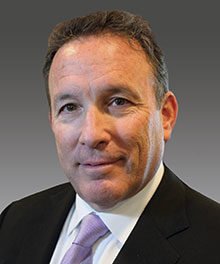Good to Bad

What makes good companies go bad? Usually, it’s the same thing that leads good people to go astray. Greed. One of the original and most enduring vices.
Over the past few weeks, leading to a grilling at Tuesday’s Senate Banking Committee hearing, Wells Fargo became the latest example of corporate greed run amok. Dating back at least to 2011 (as far as anyone can tell so far), Wells created two million fraudulent bank and credit card accounts in its customers’ names, in order to meet aggressive company targets for cross-selling new products. There were allegedly substantial incentives attached to those sales targets and extreme pressure on the front lines to meet them.
What were they thinking??? Of all the ways to bilk a customer and potentially set a company on the path to ruin, this is one of the worst I’ve seen in a long time. It is a wholesale violation of every conceivable fiduciary obligation and a straight-up breach of customer trust.
It makes me wonder what kind of thought, if any, went into setting the sales targets, and how upper management could possibly have been asleep at the switch. How did they think their people were going to be able to meet such apparently unrealistic targets without some kind of seriously “creative” sales tactics? The fact that the goals were being met on paper (through what appears to be some kind of internal control loophole) fed management’s appetite for more. There’s nothing wrong with reasonably lofty goals so long as you have accountability. But in this case, it was meet the goal, increase the goal. Meet the goal, increase the goal. It was a snowball gathering speed.
It’s unfathomable to me that senior management did not have a clue about what was happening. Maybe that’s why Wells Fargo caved so quickly in agreeing to pay $185 million of shareholder money in fines. They got caught red-handed with their fingers in the customer cookie jar.
Then leadership turned around and fired more than 5,000 lower level employees. To date, there haven’t been any personal repercussions for the senior execs who benefitted handsomely from the company’s strong financial performance while the fraud was in play and created the atmosphere and culture that allowed it to happen in the first place. In fact, CEO John Stumpf has so far steadfastly refused the idea of claw backs.
At the hearing on Tuesday (the first of many, I’m sure), Stumpf apologized for failing to “fulfill our responsibility to our customers, to our team members, and to the American public.” Nice of him.
He was grilled by senators on both sides of the aisle. Elizabeth Warren (a Democrat) told him to his face that he should resign and face a personal investigation. She described the lack of oversight as “gutless leadership.” Richard Shelby (a Republican) said Wells had “a corporate culture that drove ‘team members’ to fraudulently open millions of accounts using their existing customers’ funds and personal information without their permission.” It’s one thing to have a vision of growth with strategy and accountability behind it; it’s another to have a culture of fear and “profit above all” that drives your people to commit wholesale fraud.
Wells Fargo was one of the most respected financial firms on Wall Street. They’ll be lucky to come out of this PR and regulatory crisis in tact (although I did read a comment from one bank analyst who said that while the controversy would damage Wells Fargo’s reputation, it would be unlikely to do any real damage to its stock price. Unbelievable!). Arthur Andersen was considered one of the most, if not the most, respected accounting firms. As we know, Andersen is no longer with us. See what happens when a greedy corporate culture and an attitude of being untouchable corrupts the trusted customer/client relationship? Generally the fish stinks from the head down, which looks to be the case at Wells.
It demonstrates the extreme importance of leadership being hands-on with the business. The Ivory Tower (read: C-Suite) can be a very insular place if you don’t make a practice of getting out there where your people are and interacting with your customers. Culture starts at the top. If leadership builds ethics and transparency into the culture, rank and file will follow suit.
Meanwhile, Wells Fargo’s stock price rose on Tuesday (the day of the hearings) and is only down by about $1 since then – go figure. But that’s a whole other discussion.
Ron Storch contributed to this posting.
